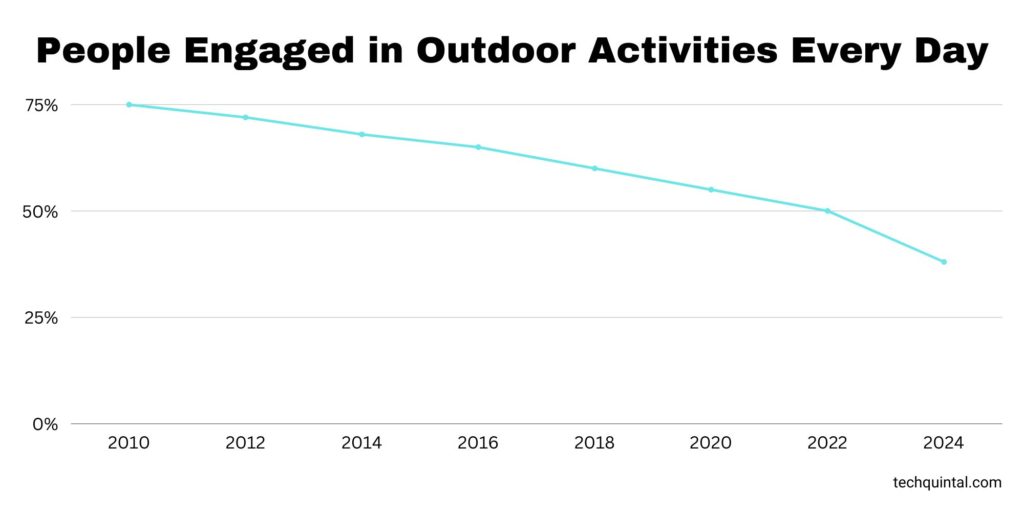
How often have you been told to put down your phone and spend quality time with family? Pretty much most of the time, right? On one hand, we are reaping the benefits of technology, while on the other we are battling with investing time in things that matter to us. Undoubtedly, family time has greatly suffered vs technology due to the overuse of the latter.
Studies show that family time is important for one’s health and well-being. This is true especially when family members are supportive. It improves one’s sense of self-worth and enhances their self-esteem. We will get into great detail as we unravel what we have in store for you on the technology vs family time debate.
Impact of technology on family time
Let us set this straight: the influence of technology on family time can be positive or negative depending on the way it is used. We will discuss both effects comprehensively.
Positive sides of technology on families
Earlier family interactions were limited to the in-person meeting. There were quite a lot of barriers that hindered frequent family gatherings. Then, technology came into the picture, and the rest, as you know, is history. There are family groups now, allowing members to connect regularly.
Most importantly, technology closes geographical gaps. In fact, as technology is advancing, people of all ages are engaging with it. Thus, it improves family communication significantly.
Technology gives access to near-infinite resources, hence allowing families to get closer. They can plan more family gatherings for watching movies, playing games, or just conversing. For parents, technology is like a blessing, allowing them to improve their children’s learning experience.
The tech-enabled educational resources make learning more engaging and fun, all the while improving parent-child relationships. Plus, technology simplifies the saving and sharing of memories, therefore eliminating the need to maintain a physical photo album.
Negative aspects of technology on relations
What does your family gathering look like? Are your family members often interacting with each other or are they fixated on their devices? If your case is the former situation, good for you. Whereas, if your case is the latter option, you are already experiencing the negative influence of technology on family time. Nearly all family members nowadays have some type of screen consuming their time.
This reduces the quality of time (and the duration of quality time) they spend together. In the long run, woefully, it becomes the leading cause of failed family relations.
In the busy times we live in, most families can only have a single meal together in a day. That too is usually dinner. When screen time is involved in the already limited family interactions, it becomes a threat to bonding. As much as technology improves communication, it sadly results in a decline in face-to-face dealings.
To summarize, the overuse of technology can become perilous to family ties. But controlled screen time does not necessarily harm the children especially when family members take a proactive approach.
If we also take into consideration a few studies or surveys done in recent years, we will see a pattern that directly paints technology as the culprit when it comes to reduced family time. In fact, a survey done by OnePoll on behalf of Discover Ferries, a body representing ferry operators, found that as many as 9 out of 10 parents think technology and gadgets come in between family time all too often.
Over the years, an alarming number of parents have started to feel that, despite being in the same house for a prolonged period, the family members are all busy with their respective gadgets and devices. Almost 86 percent admit that every family member spends time on these devices separately, reducing actual face-to-face interaction to a shocking degree. 7 in 10 parents have also confessed that even when they do take the time to try and engage their children, they are busy on their smartphones or tablets instead.
Technology has certainly created a chasm between family members, and the consequences are as follows:
1. Reduced Face to Face Conversations
Children, and even parents, have become reliant on different technologies. Which in itself is not a bad thing. However, with an increased amount of time spent on their gadgets, they have either forgotten or have no time to actually sit across from one another and have a heart-to-heart conversation.
It has become increasingly difficult for them to communicate directly, and while it can be due to several social, psychological, or personal reasons, if we look closely, we will find technology at its heart. Real conversation has been replaced by short and easy chats. Even if someone is only across the room, many people resort to chatting instead of simply calling the person over.
This can severely affect a child, as he will have less experience in interpersonal and interaction skills as he grows up. Furthermore, the conversation will be more mechanical than organic due to its overreliance on technology.
2. Limited Outdoor Activities
Technology has driven a whole generation indoors. Where once children loved going outside to play and have fun, it has been replaced by indoor activities, be they video games, watching web series, or even texting. This reduction in outdoor activities is not only a problem from a social point of view but can also result in a health issue.
Based on our own research (collected from our users), this is how the number of outdoor activities looks like over time –

It is not looking good. Lack of outdoor activities is unhealthy, as children need regular exercise for growth. Combining it with unhealthy eating habits, which again can be attributed to technology, can result in diseases and other ailments. Technology has a greater impact on our lifestyles than we give it credit for. If not taken care of, limited outdoor activities can also breed mental health issues.
3. Poor Role Models
When children live in a loving and caring family, they grow up to be healthy and contributing members of society. They can learn the ins and outs of life and be at ease with interpersonal interaction. However, there have been glaring signs that the current generation, due to a heavy reliance on technology, runs the risk of lacking empathy for individuals.
With constant cases of cyberbullying, internet trolling, and generic bad behavior on the internet, it deeply affects a child who grows up seeing and learning all this. Today, there are no good role models, including parents, as they too, are heavily using technology.
Importance of family time
If you are guilty of being glued to your screen instead of bonding with your family, we laid out the significance of family time for you. We hope this encourages you to make the right choice for yourself.
Studies show that the overall health of the family increases when members invest their time and show interest in each other’s well-being. This creates a safe and healthy environment, where members become more willing to share their problems and seek help.
Another study has revealed that individuals with good family relations are less likely to get involved in risky behaviors such as substance abuse and violence. Spending time with family opens the line of communication, and seeing the parents interact with other members sets a positive example for children. To sum up, it improves family ties.
Technology vs family time and their integration
Technology is inseparable from our lives. Thus, instead of dwelling on thoughts of eliminating technology, let us do something different. We will look at how technology can be leveraged to increase family time and improve familial bonds. The following are a few factors worth taking into account.
Independence of family members
Technology like tracking applications enables parents to give more autonomy to their kids. Family members can learn each other’s whereabouts, making them less concerned. This gives them a sense of relief knowing if something wrong happens, their family has got their back. That way, parents can let children explore while ensuring their safety is not compromised.
Home security
Rather than perceiving technology as a threat, families can use it as a means of boosting security. This can be achieved in the form of installing an advanced security system at home. It would alarm the family in advance so that they can respond quickly in case of an emergency. That way, family members can rest assured knowing measures are in place if and when the need arises. This brings more peace to families.
Connectedness between members
Technology has provided a means for building connections, therefore strengthening relationships. Social media has brought the world closer, including family members separated by geographical boundaries. Now people can easily join groups and communicate.
Plus, there are emojis, allowing members to express themselves. The importance of technology is being realized greatly during pandemic times as interactions are limited for safety purposes. It has remained the only hope for families to communicate and keep tabs on one another.
Your remarks about family time vs technology?
Indisputably, technology has impacted our family time, but the type of consequences it can have depends on us. It has enhanced our way of living and further advancements will result in better outcomes. Technologies provide opportunities for family games or movie nights, enriching family relationships. Now that we are so close to the end of the analysis, we would like to know your thoughts on the technology vs family time argument.
Also, we would leave you with a suggestion. Try to use the technology positively, and in the long run, you will see progress in the health and well-being of your family.